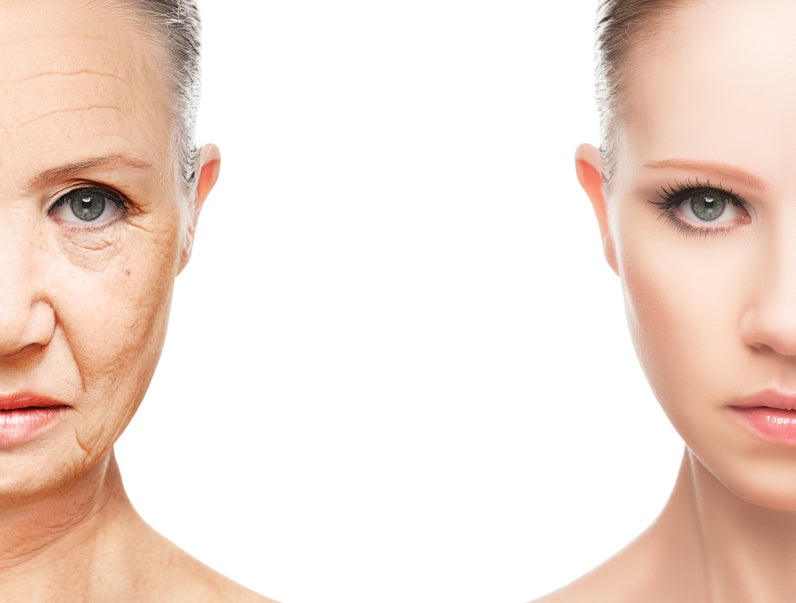
We’re not getting any younger. It is something we celebrate with candles and cake each passing year, but in reality, many of us dread the idea of aging. We don’t want to look older and we certainly don’t want to feel older. Of the 75 million Baby Boomers, every day thousands are literally blowing out the candles on their 50th birthday. The anti-aging industry is also celebrating – as an estimated $12 billion is spent annually on products claiming to make us look and feel younger. However, aging is not just skin deep. As a new study finds, how quickly we age can affect our health later in life. It is news men and women in their 20s, 30s and 40s need to pay attention to in order to stave off disease in their 50s, 60s, 70s and beyond, according to researchers.
Looking at nearly 1,000 men and women ages 26, 32, and 38, researchers noted various measurements of their health at three difference times into their 30s and 40s. They looked at the impact on multiple organ systems – pulmonary, cardiovascular, periodontal, renal, hepatic, and the immune system - by tracking biomarkers such as blood pressure and cholesterol. With this data, researchers were able to track their biological age - the rate at which they were actually aging – compared to their chronological age. Researchers could pinpoint, even before midlife, those who were aging more quickly than their chronological age and those who were not. Those who were aging more quickly also began to look older, they found.
“Our findings indicate that aging processes can be quantified in people still young enough for prevention of age-related disease, opening a new door for anti-aging therapies,” states the study published in the Proceedings of the National Academy of Sciences of the United States of America. If health care providers can pinpoint the signs of aging in their patients, this study supports the idea that major chronic disease like cardiovascular disease and diabetes, to name two, could be largely prevented – impacting longevity and quality of life as people age. It also gives researchers the opportunity to effectively test anti-aging remedies.
Slowing Down the Aging Process
While inevitable, there are steps you can take to age “healthy” – at a rate on par or below chronological aging:
-Establish relationship with a primary care provider
According to the Centers for Disease Control and Prevention (CDC) only 58 percent of men and 81 percent of women visited a health care provider in the last 12 months. A key to identifying warning signs for disease and other health conditions lies in the relationship you have with your health care provider. Not only are preventative visits important, but annual wellness exams as well. To find a Utica Park Clinic provider, click here or call 918-579-DOCS.
-Maintain proper weight/BMI
From increased risk of heart disease, diabetes and even cancer, being overweight takes a toll on the body. Conversely, studies have shown people who maintain a healthy weight throughout their life help reduce their risk of developing chronic illness significantly. But how do you know if you are at a healthy weight? Body Mass Index (BMI) is a good way to see where you stand.
Normal weight: BMI between 18.5 and 24.8
Overweight: BMI between 25 and 29.9
Obese: BMI 30 and above
To calculate your BMI, use this online calculator.
-Proper nutrition
A diet rich in nutrients from a largely plant-based diet has many anti-aging properties. Antioxidants in dark leafy greens, for example, help protect your eyes from macular degeneration. The more variety of fruits, vegetables and lean meats you can incorporate into your diet, the better!
-Sleep
Feeling like you just can’t remember things the way you used to? That’s a natural result of aging. Researchers have found a direct link between the quality of sleep and memory – especially as we age. As we get older, the amount of deep quality sleep is reduced. Fewer hours of deep sleep each night translate into a decline in our long-term memory. It is especially important to maintain a sleep routine every night – going to bed and waking close to the same time regularly.
-Regular physical activity
Exercise is a prescription to slow down the aging process in many ways. First, it helps promote a healthy weight. Second, exercise helps maintain normal blood pressure and cholesterol levels – two of the biomarkers researchers used as a barometer for aging. Also, exercise can help increase the density and strength of our bones even as we get older when the risk of falls and fractures increases.
-Suncreen
Sunscreen not only helps you look younger by blocking harmful UV-A rays from the sun, which break down the skin’s firmness and leads to freckles and aging spots, but it also helps protect against skin cancer, the most common type of cancer in the U.S. Protect your skin with broad spectrum sunscreen to block UV-A and UV-B rays. SPF 15 blocks 93 percent of these rays; SPF 30 blocks 97 percent.
-Stay hydrated
Regulating fluid balance (fluid intake and output) in the body is essential to assisting our body’s function down to a cellular level. Therefore, staying hydrated is important to supporting our vital organs. Dehydration causes the body to conserve body water and therefore, the kidneys output less water. As we age, the process for maintaining fluid balance weakens or becomes less efficient, putting us a greater risk of suffering complications from dehydration. Even if you do not feel thirsty, make sure you are drinking water throughout the day – about eight 8-oz glasses a day.
Focusing efforts in these areas can help you slow down the natural aging process and live a happier, healthier life.
